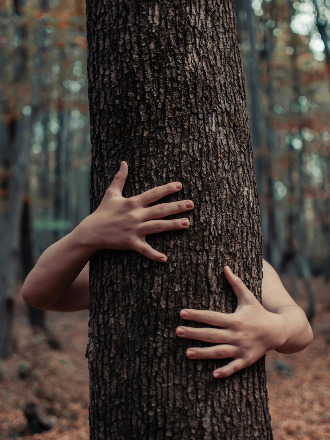More exposure to nature makes us care more about stopping climate change

If a tree falls in the forest and no one sees it happen, do they still care about the environment? Recent environmental psychology research suggests that how much we want to protect nature can depend on how much green space surrounds us, and that the threshold between people caring less or caring more about nature may be a fine line.
Being unable to access and experience nature in a meaningful way can lead to a sense of disconnection from nature, which can result in us feeling less motivated to protect what little green space remains.
This vicious cycle - nature disappears, people care less, and more nature gets lost - is being exacerbated by climate change, and is known as Extinction of Experience (EoE).
In a new paper out in the Journal of Environmental Psychology - An agent-based model of the extinction of experience: How nature availability and connectedness to nature co-evolve over time - the authors sought to better understand how this cycle works.
In a simulation, the researchers examined what could influence people entering a positive or “virtuous” cycle of concern about (and motivation to protect) nature. One possible threshold existed between 23 and 25 percent of green space in their living environment. In a theoretical experiment where people were living in areas with 25% green space around them, they had higher sustained levels of connection to nature. But people exposed to even 2% less green space – 23% - had less of a sense of connection to the nature around them and felt less compelled to protect it.
The researchers used agent-based modeling (ABM) – a computer simulation based on real world data that shows how multiple variables influence each other over a certain period of time – to see what ways people’s pro-environmental behavior was impacted by their experiences with nature.
Their model focused on three variables:
-
how much nature is available (like parks and green spaces)
-
how often people experience nature
-
how connected people feel to nature
By running ABM simulations about how these three variables interact, the researchers were able to identify what extinction of experience could look like and find potential thresholds or tipping points.
Their results show something important: small losses in green space could lead to big changes in people’s connection to nature in real life. If the amount of green space drops below 23%, the model predicts a tipping point where people’s connection to nature rapidly declines. At that point, the EoE could get much worse, and become very difficult to reverse.
But that connection can turn around with even a small increase in experience with green space: as little as one or two percent more green space (more parks and wooded areas) near this threshold can mean the difference between a positive or negative sense of stewardship of the natural world.
The researchers say that their findings can convey the urgency to act before things go too far in the wrong direction to the governments and city planners who can take action. In terms of policy implications, the authors posit that using Agent Based Modelling can help civic employees make better decisions, for example by gaming out how much green space a neighborhood needs to keep people connected to nature, or identifying neighborhoods at risk of tipping into caring less about nature.
More news
-
03 February 2026
‘Such willpower’
-
20 January 2026
Alcohol, texting, and e-bikes
-
13 January 2026
Lonneke Lenferink joins The Young Academy


